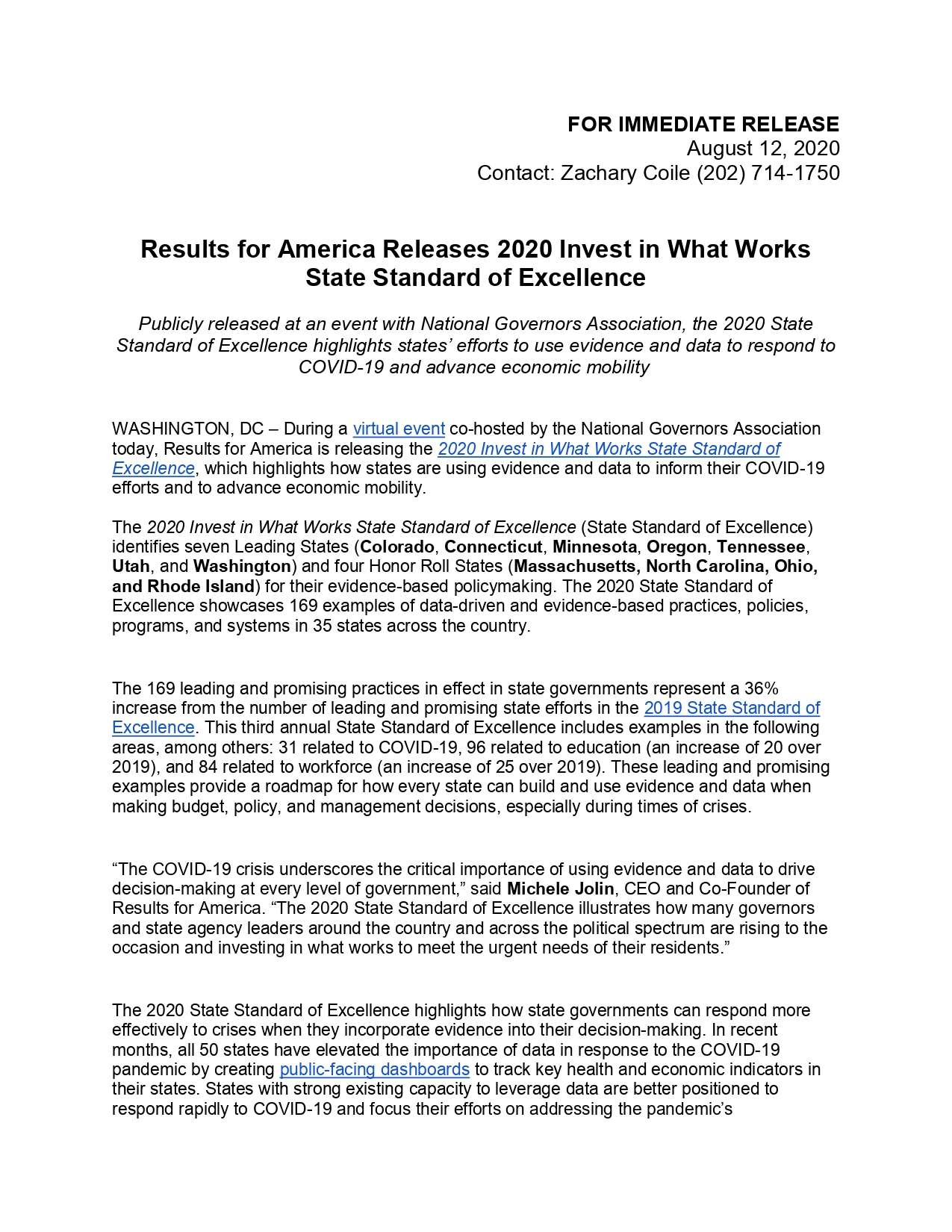Research & Evidence
OSPB | Budget Documents | Economics | Emergency & Stimulus Funds | Performance Management | Research & Evidence | About | Contact
Overview
The Governor's Office of State Planning and Budgeting (OSPB) is committed to evidence-based policymaking through advancing the use of research, evidence, implementation science, and benefit-cost analysis in state decision-making processes. OSPB is analyzing, documenting, and promoting strategies that are proven to work, while at the same time encouraging innovative new approaches paired with evaluation.
FY 2022-23 Budget
- FY22-23 OSBP Budget Instructions Evidence Section (updated)
- FY22-23 EBP Budget Training Video
- FY22-23 EBP Budget Training Slides
- OSPB Grant FY 2022-23 Template
FY 2021-22 Budget
- FY 21-22 Budget Evidence Attachment
OSPB Implementation and Evaluation Grant
OSPB is committed to working with State agencies to improve the use of evidence-based policymaking to inform resource allocation, program design, and program implementation. Evaluations are essential to preserving the programs that work and reform the programs that are not achieving their intended outcomes. Since FY 2017-18, OSPB has awarded about $500,000 annually in grants to support State program implementation or evaluation of outcomes.
2021
Overview
Grantee End-of-Year Reports
-
Family First Evidence-Based Programs: Final Report
-
Marijuana Impaired Driving Program: Evaluation Literature Review | Final Report
-
School Counselor Corps Grant Program: Implementation and Evaluation Plan | Grant Evaluation Update
-
School Health Professional Grant Program: Grant Evaluation Update | Final Report
-
Student Re-Engagement Grant Program: Grant Evaluation Update
-
Telemedicine Practices Grant Program: Evaluation Report | Grant Evaluation Update
2020
Overview
Grantee End-of-Year Reports / Final Deliverables
- Past Grantee Final Deliverables
- School Bullying Prevention and Education Grant
- Colorado Opportunity Scholarship Initiative
- Colorado Pretrial Assessment Tool: Final Report Pt. 1 | Final Report Pt. 2
Partners
OSPB works with other Governor's Office components, state agencies, the legislature, and academic and non-governmental partners to promote the use of data and evidence to inform state policy, planning, and resource allocation.
Results for America: Colorado was recently recognized by Results for America as one of the leading states in the nation in connecting its budget to data and evidence for the second consecutive year. The state is focusing its resources on programs that are proven successes through data and research.
Pew: In the Summer of 2014, the Colorado Executive Branch and the General Assembly partnered with the Pew-MacArthur Results First Initiative to implement Results First in Colorado. The Evidence-Based Policy team in OSPB has reviewed programs in the areas of adult criminal justice, juvenile justice, child welfare, behavioral health, prevention, and health policy. The Pew-MacArthur Results First Initiative works with Colorado and other states to implement an innovative cost-benefit analysis approach to state policy decision making.
NCSL: Colorado is a founding contributor to the National Conference of State Legislatures’ new Evidence-based policy center. Launching in the summer of 2020, this center will continue the great work started by Pew over a decade ago to advance the use of evidence in government. OSPB was invited, based on our respected track record of EBP, to join with colleagues from across the country to identify operational best practices, provide mentorship and advice, and formulate a how-to guide for states as they adopt evidence-based decision making.
Colorado Evaluation and Action Lab: The Colorado Lab is an innovative government-research partnership housed at the Barton Institute for Philanthropy and Social Enterprise at the University of Denver. The Colorado Lab works with state officials to evaluate public policies, design improvements to existing programs, and pilot new interventions intended to benefit Colorado residents. Modeled after other existing labs across America, policy labs are government-research partnerships that seek to integrate evaluation into policymaking by pairing experienced researchers with state and local officials in order to study problems and scale proven solutions.

